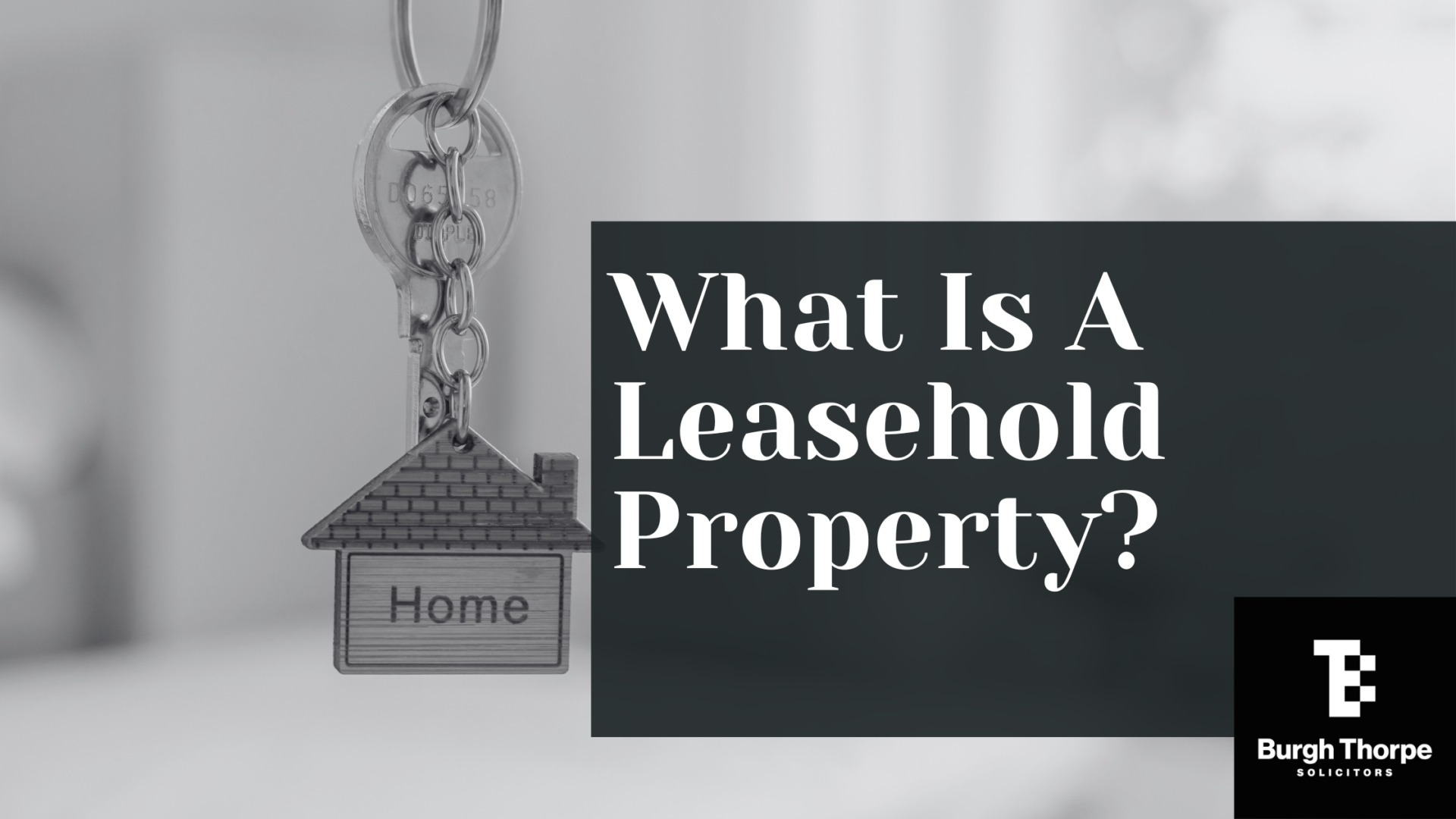What Is A Leasehold Property?
Conveyancing Posted 12 August 2024Have you been house hunting in Peterborough and come across the term leasehold property? You might not be sure what it means, but too scared to ask in case you look silly? First things first, here at Burgh Thorpe Solicitors, there are no such things as silly questions. We want to help you on your house buying journey, and we know there are a lot of confusing terms and words that you might not be used too.
So, in this blog post we look what a leasehold property is. This will give you the confidence you need to continue with your house buying.
What Does Leasehold Mean?
When purchasing a leasehold property, you are buying only the property. You are not buying the land that the property is build on. The land that your home is build on is owned by the freeholder. This means that you will own the property for a specific amount of time. When this time comes to an end, the ownership of the property reverts back to the owner of the freehold.
What Are the Advantages of a Leasehold Property?
One of the main advantages is that you will often find leasehold properties are cheaper than freehold properties. This is because when you are buying a freehold property, you are buying the property and the land. Dependent on your individual circumstances, a leasehold property may be better for you. This is because leasehold properties tend to be flats.
Another advantage of leasehold properties is that the landlord will tend to be responsible for the repair and maintenance of the building. This will include any communal areas. The landlord will also arrange any building insurance for the property. This means that there will be less responsibility on you as the homeowner.
What Are the Disadvantages of a Leasehold Property?
As with all things in life, there are pros and cons. It is no different for leasehold properties. For example, when you own a leasehold property, you will need to pay rent and service charges to the landlord. This will be in addition to your mortgage payments. There may also be restrictions of alterations and refurbishments you can make to the property. In many cases, you will need to obtain the consent of the landlord before making any alterations to the property.
Many times, leasehold properties will come with extra restrictions that you need to comply with. These could include no pets in the property or not being able to run your business from the property for example. One important disadvantage to be aware of is that you will only own the property for as long as the term of the lease. When considering purchasing a property with this type of hold, check the lease and how long is left. It is much harder to sell a property the shorter the term that is left on the lease.
There is a lot to think about when purchasing your next home. It’s an exciting time, but it can be a scary or overwhelming time too. Why not call our residential conveyancers in Peterborough? We can hold your hand and support you every step of the way. Buying a home doesn’t need to be scary – when you work with the residential conveyancing lawyers that want to help you.
